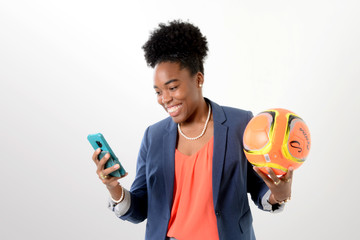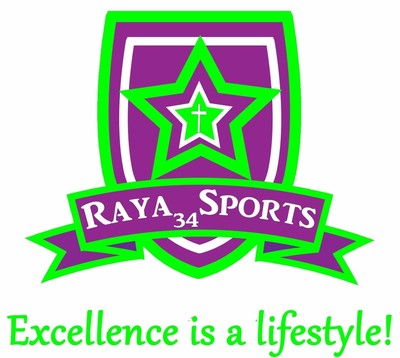More than Boots Program

The More than Boots (MTB) football program serves to tackle the UN Sustainable Development Goals 3 and 5 by addressing childhood obesity and the lack of access to sports (football) for girls in Barbados. Through exposing girls to a safe and fun environment to learn football the goal is to get girls more active and, on the path, to making physical activity a lifelong love.
What is the purpose of the project?
The aims of the project were to
- Encourage 100 girls aged 4 to 12 in Barbados to learn football, through one to two hours of physical activity every week. during the 2020-2021 school year.
- Encourage self-directed healthy activities outside of sessions.
- Develop football skills (dribbling, passing, shooting, etc.).
- Develop teamwork, communication, confidence, problem-solving, and other life skills.
Success of the program will be based on weekly attendance rates, pre-and post-program survey completed by participants and parents/ guardians to gauge activity levels and life skill development. Tracking weekly & monthly individual training time using the Techne Futbol app will also be used as a success factor. Finally, the percentage (Target 50% of participants) of girls returning for the Track how many girls return for the 2021-2022 program will also be used as a measure of success.
What were the enablers that proved successful in your project?
Covid-19 negatively impacted the recruitment of girls and schools to the programs due to changes in the educational model. Most schools introduced a blended approach with in-person and online classes. This made it harder to get some schools to sign on the program as they were occupied with managing shifts in their school operations. These challenges also impacted the attendance rates as school cancellation or schedule changes resulted in smaller numbers participating.
Due to spikes in Covid-19 cases and Government directives sports were restricted for a period during the program, thereby reducing the number of in-person sessions we held. Covid-19 also made fundraising for the program very difficult due to the change in the economic status of potential donors as well as due to the inability to host in person events. This resulted in a heavy reliance on grants to source equipment and pay coaches.
One of the goals of the program was to gift each participant with a pair of football cleats to reward them for their commitment throughout the program. However, due to high import taxes and duties, and the length of the process for the approval of waivers it was hard to plan the handover of prizes and awards for participants upon the culmination of the program.
What impact did your project have?
The major system shift that occurred as a result of the program was that stakeholders (schools, Physical Education Teachers and Football Coaches) realized that there is a large interest for girls to participate in football but that they were waiting for the right system to be put in place. Additionally, six local primary schools now have a base of girls and equipment (balls) to maintain a girl’s school team.
The project has also led to discussions on the importance of access to the participation of girls and women in sports and in society in general.
What were the outcomes for women?
Over 90 Girls aged 4 to 12 now have a space where they can come to learn football and be physically active without having to deal with being compared to boys or feeling threatened because of the presence of boys. During the course of the program, 24 players combined trained over 65 hours on their own using the Techne Futbol App. The project has encouraged increased physical activity in young girls not only through our facilitated weekly sessions but also on their own.
Additionally, it has started to shift the perception that girls and women are not interested in sport due to the initial large turn out for the program and the continued interest of participants and their parents. The program is also starting to bring awareness for the need for more women centered sports programming, especially in sports traditionally seen as male sports.


























